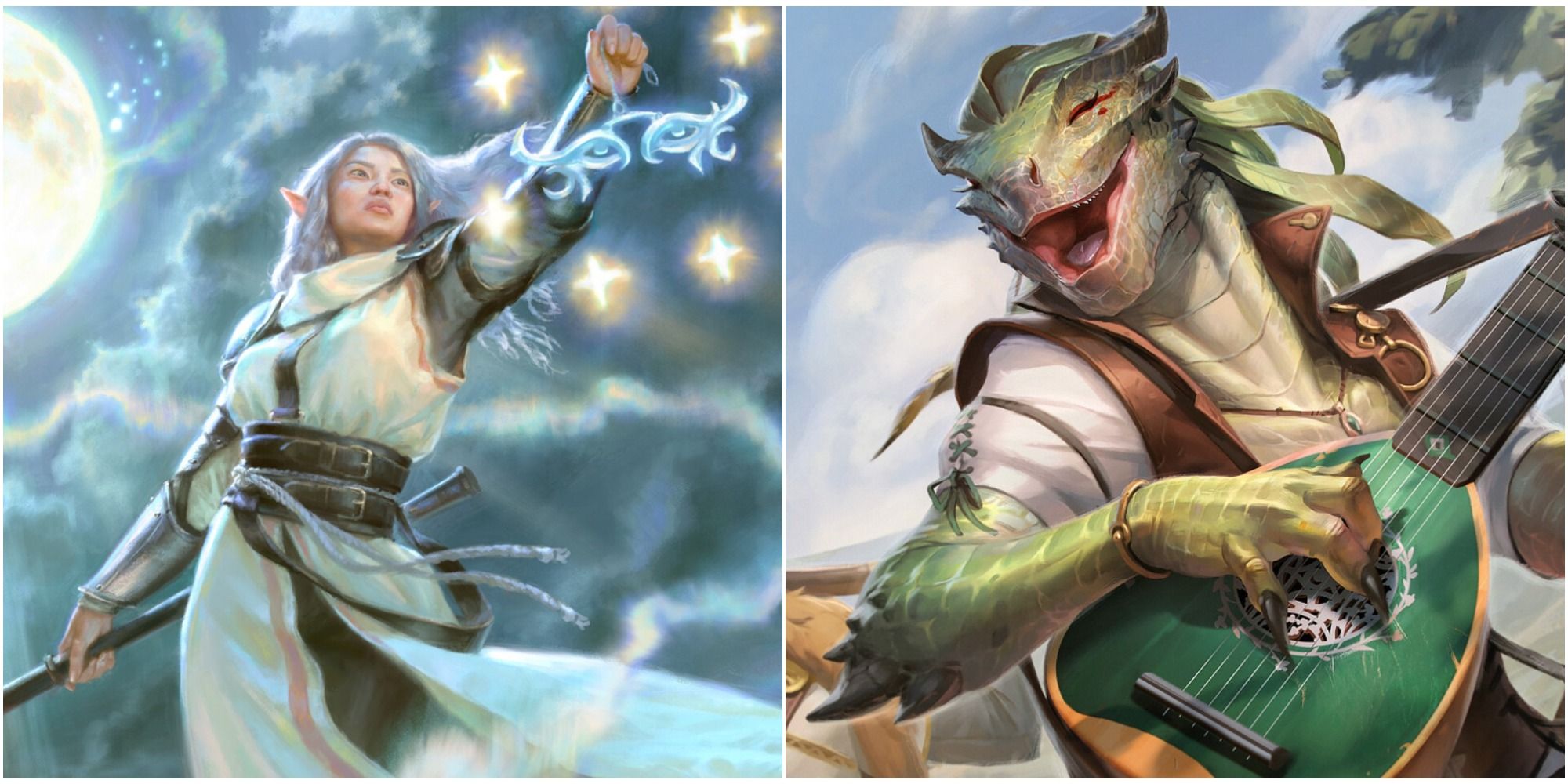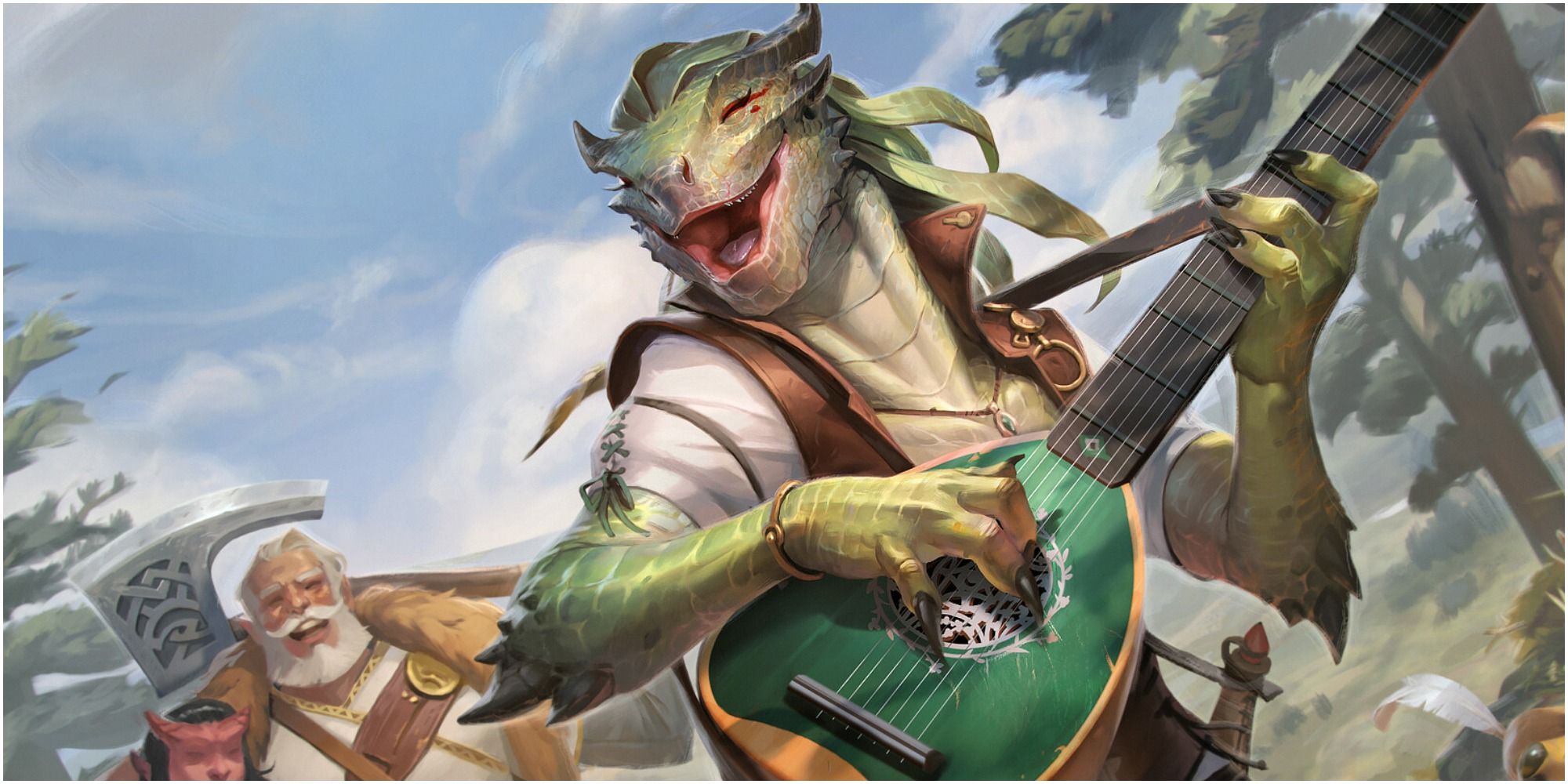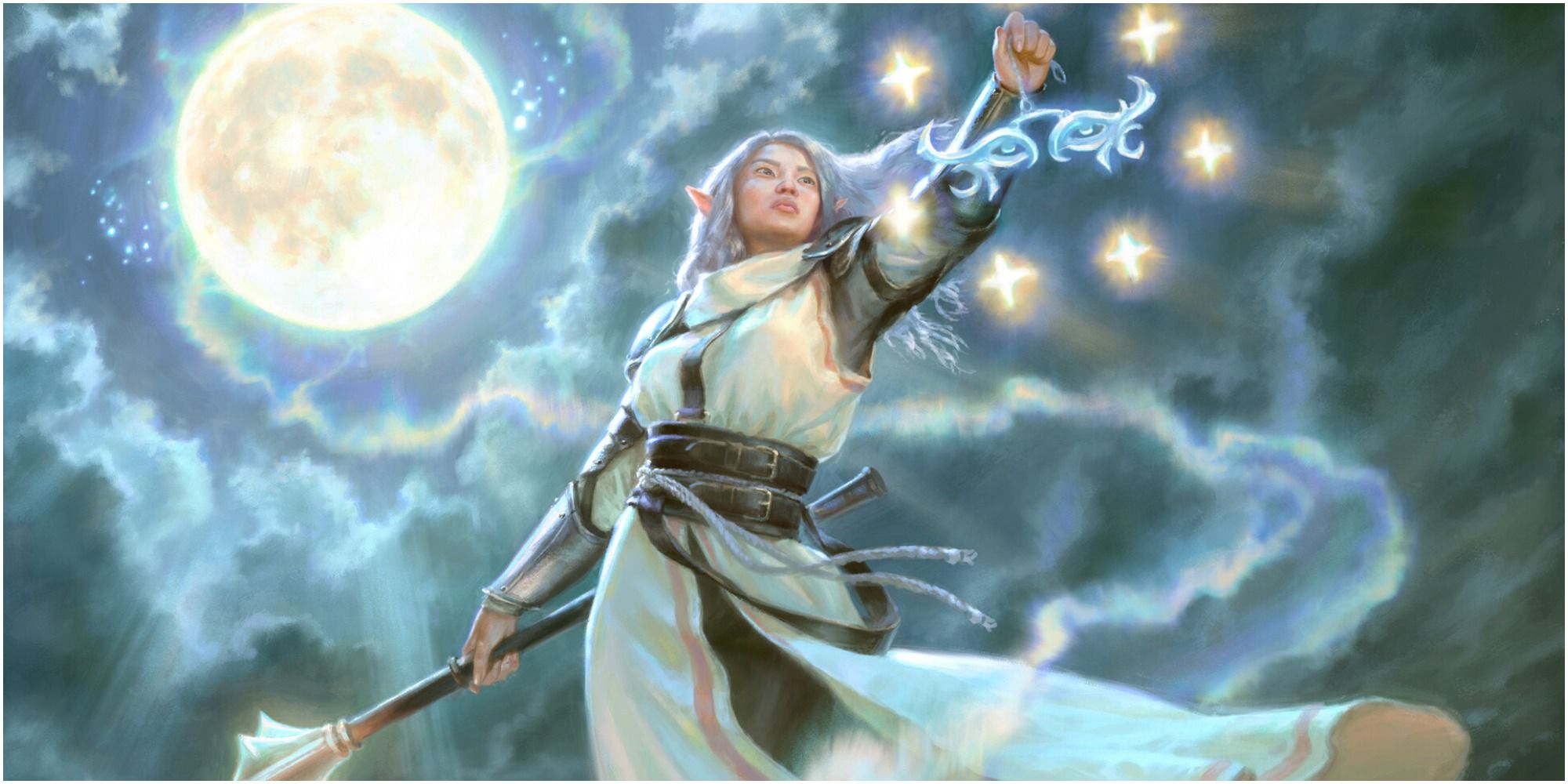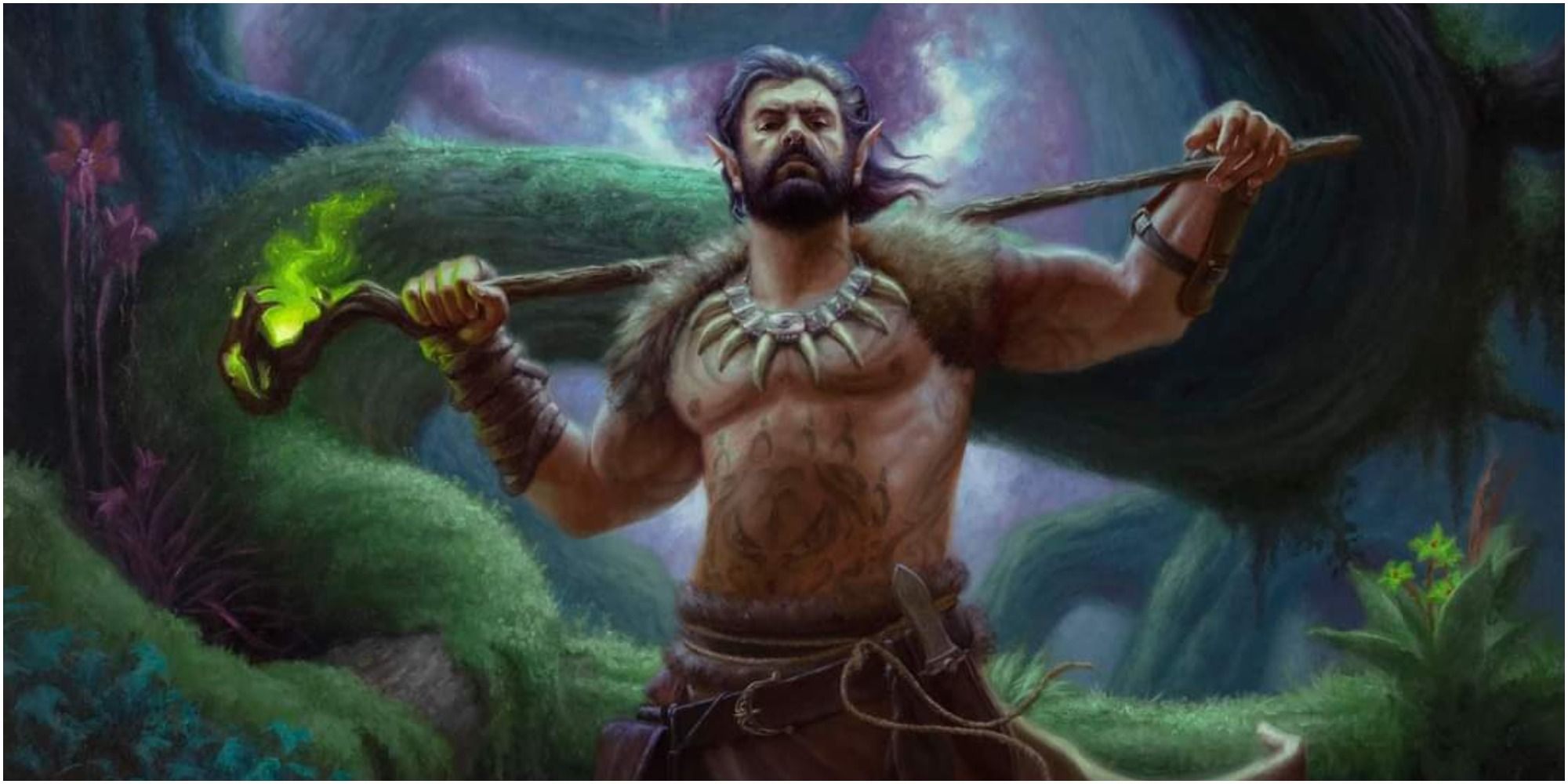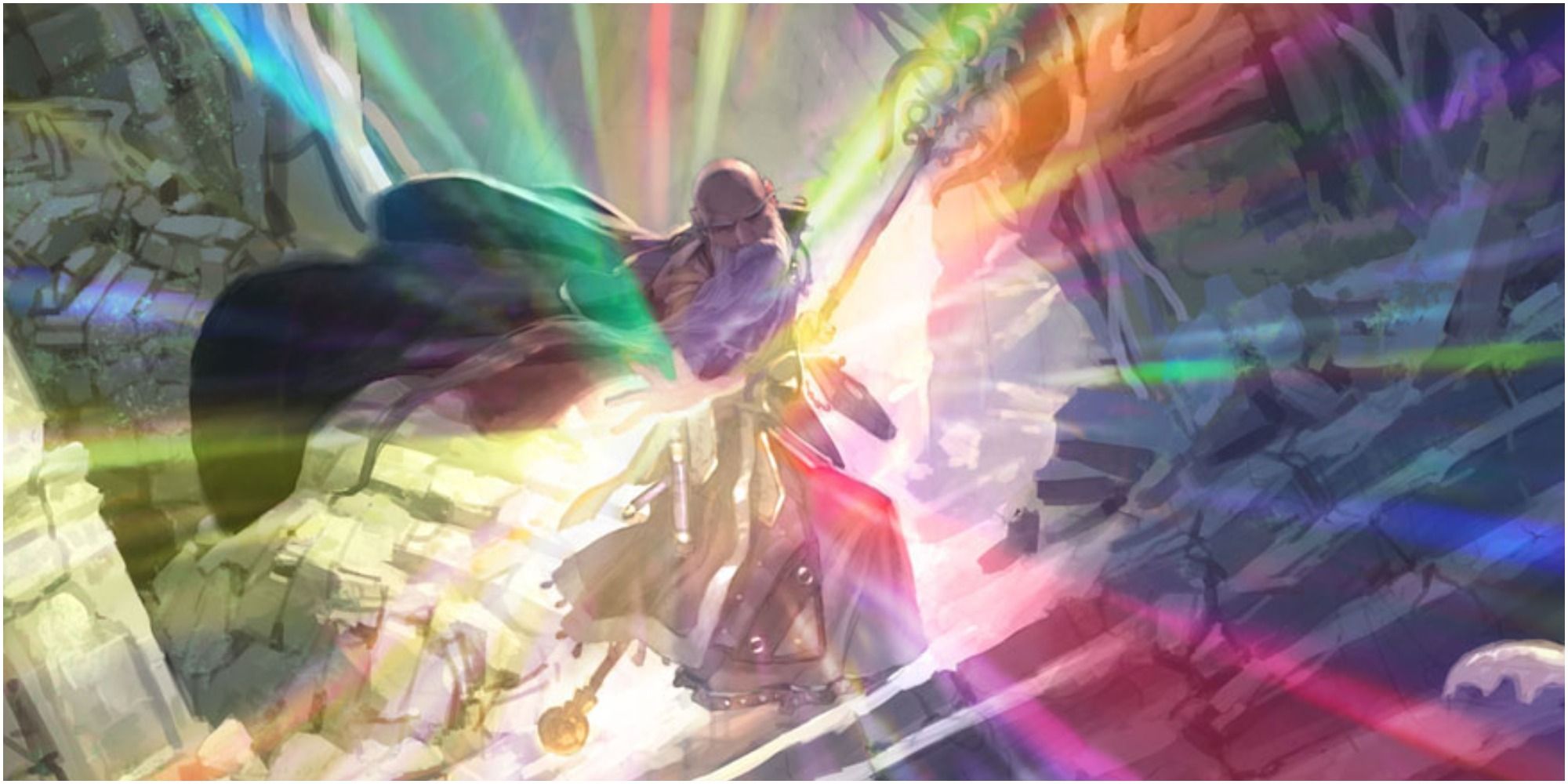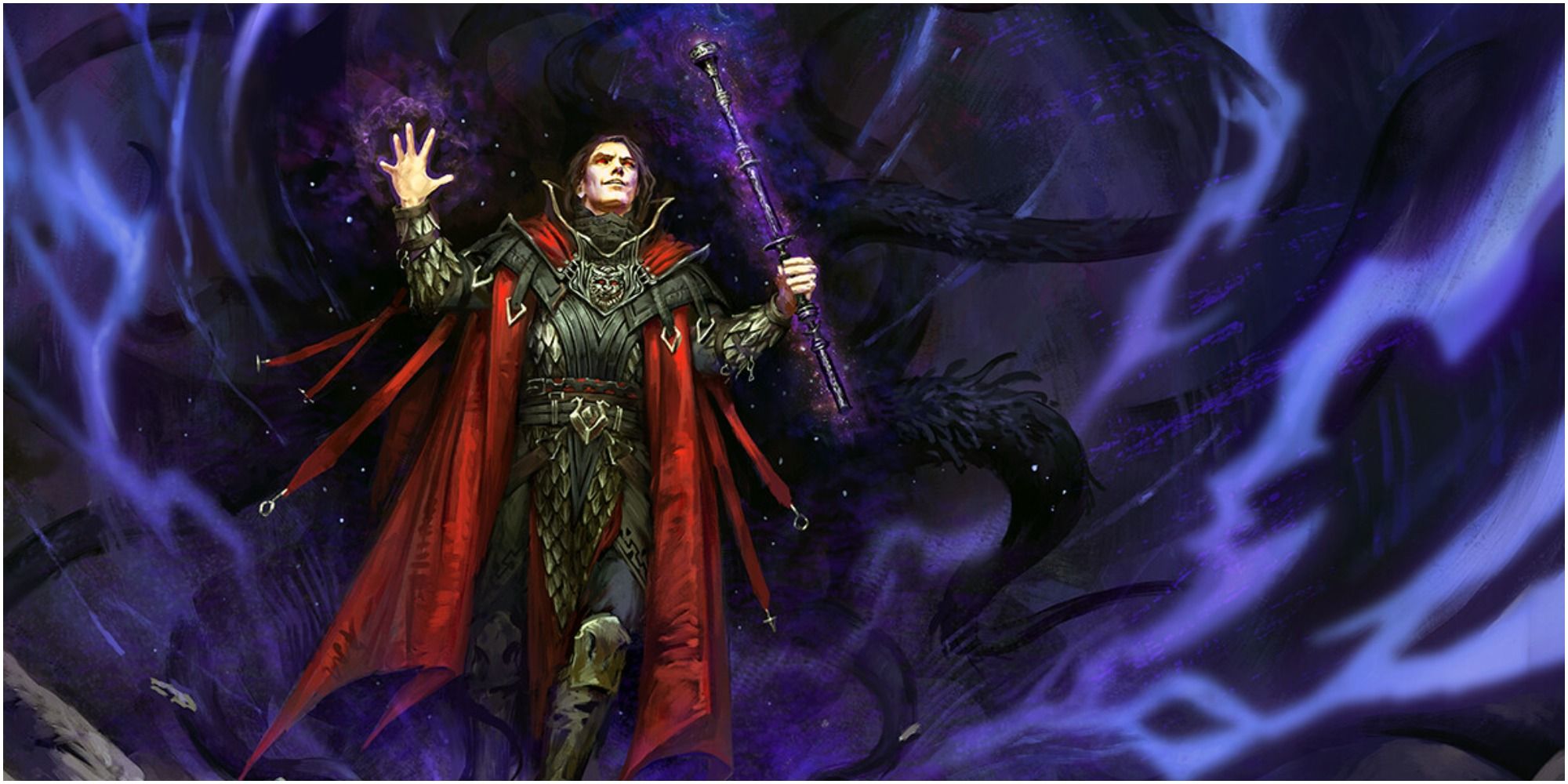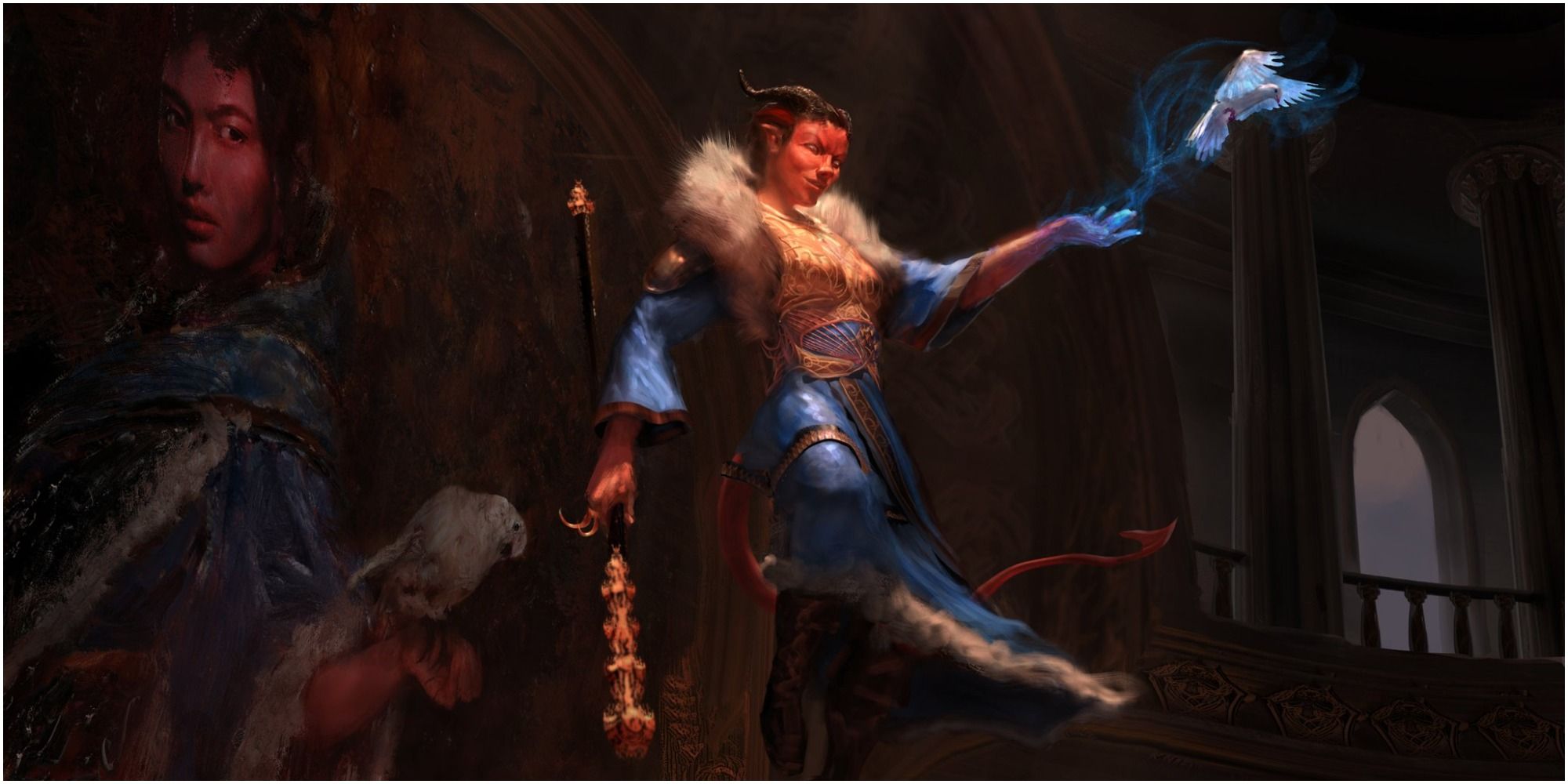Dungeons & Dragons is filled to the brim with ways for players to customize their characters, making them distinct and personalized. While a player's choice of their character's race and background are important, the choice of a character's class shapes the fundamental abilities that a given character will be able to bring to an adventuring party.
Though the game's thirteen classes are each unique, they can be broken up into two categories: martial classes and spellcasting classes. As one would expect, spellcasting classes are those that are designed around the use of magic to help solve problems both in and outside of combat. As the various spellcasting classes in Dungeons & Dragons each bring entirely different utility and mechanics to the table, we're going to explore what each of these spellcasting classes are capable of for newcomers trying to decide which type of spellcaster may be right for you!
Bard
Bards are a class that utilizes their charisma to harness the power of music, performance, and expression to cast spells and support their allies. Among the most flexible classes in D&D, while they aren't as focused on dealing damage as a class like a sorcerer, Bards have access to their fair share of offensive options, healing magic, and useful utility options. Bards can notably fill nearly any role a party may need, as a Bard is capable of gaining proficiency in any skill in the game while its various subclasses can allow a player to choose an area where their Bard truly excels. One of the most notable features of the Bard class is "Bardic Inspiration," a feature that allows a Bard to help improve the capabilities of their allies.
Strengths
- Very Flexible
- Great as a party's negotiator
- Capable of offering support through Bardic Inspiration and healing magic
Weaknesses
- Lacking in heavy-hitting blasting spells
- Lackluster defensive options
Cleric
Wielders of divine magics, Clerics are wisdom-based spellcasters who've gained their spellcasting abilities through devout faith in one of the various gods of D&D's pantheon. With a reputation as the best support class in D&D, Clerics have access to a sizable number of support spells that can be used to heal allies, improve their offense or defense, or help alive negative status effects. While they're known for their support utility, Clerics have access to numerous solid offensive options that allow them to hold their own in combat. Additionally, based upon the domain of the god they serve, Clerics gain access to additional utility and special Channel Divinity abilities that can do anything from healing one's allies to deal damage to their enemies. As many Cleric subclasses gain access to proficiency in heavy armor, it should be noted that Clerics are often among the most durable spellcasters in D&D. It should also be noted that rather than learning their spells, Clerics can prepare spells over a long rest. This means that they can prepare for obstacles and combat ahead of time, ensuring they're ready to cast relevant and helpful spells for a given situation.
Strengths
- Best healing options in the game
- Incredible support options
- Capable of offering solid damage in combat
- Notably durable
Weaknesses
- Lack of damage type variety, as nearly all damaging Cleric spells deal either Radiant or Necrotic damage
Druid
Druids are wisdom-focused spellcasters that wield nature-based magics that like the Cleric, excel both offensively and when supporting their allies. Outside of their spellcasting capabilities, one of the most noteworthy elements of a druid is its Wild Shape feature. This ability allows a druid to temporarily transform itself into a form of an animal, offering a disguise, mobility, and even additional HP. With healing options that rival those of the Cleric and Bard, Druids are quite adaptable like the Cleric due to their ability to prepare spells over a long rest. While Druids have access to a wide range of impressive spells, many of which are even exclusive to the class, it should be noted that many of the Druid's key spells are concentration spells, meaning its often important for a player to ensure their druid has high constitution for the inevitable concentration checks.
Strengths
- Access to a massive and flexible spell list
- Capable of casting impressive offensive and support spell options
- Wild Shape allows a Druid to reliably transform into animal forms
Weaknesses
- Heavy reliance on the use of concentration spells
Sorcerer
Sorcerers are spellcasters whose access to magic is a result of their bloodline or the influence of another plane. Utilizing their charisma to cast spells, Sorcerers are perhaps the most offense-driven caster's in D&D, toting a highly damaging spell list several means of augmenting their spells to make them all the more deadly. Though they are quite frail, with a d6 hit die and lacking armor options, these glass cannons can deal massive damage to a party's foes. One of the most noteworthy features of the Sorcerer class is its Metamagic mechanic. Through the use of Sorcery Points, a Sorcerer can augment their spells in a litany of ways, doing anything from extending their range to allowing a spell from hitting an additional target. These points can even be exchanged for additional spell slots, providing the class with a stellar and flexible resource to utilize. A sorcerer's various subclasses can alter a Sorcerer's utility, providing features such as support options, improved damage output, mobility, or even completely random effects in the case of the Wild Magic Sorcerer.
Strengths
- Phenomenal damage output against single targets and crowds of enemies alike
- Able to flexibly adapt to different situations through the use of Metamagic
Weaknesses
- Notably frail glass cannons
- Lacking in support options depending on the subclass
Warlock
Another spellcasting class that makes use of one's charisma to cast spells, Warlocks are those who have gained their magic through pacts with powerful otherworldly beings such as fiends, archfey, or even eldritch beings beyond mortal comprehension. Warlocks are mechanically quite distinct from the other classes on this list and allow for a sizable degree of personalization. While all other spellcasters have a somewhat sizable pool of spell slots to manage over the course of a day, regaining used slots after completing a long rest, Warlocks have far fewer slots to use at once. However, while other classes have access to spell slots of various levels. each of a Warlock's spell slots are of their highest available level, and these slots are regained upon simply completing a short rest. Additionally, in addition to picking one's subclass and spells like other classes on this list, Warlocks also choose from several available Pact Boons and Eldritch Invocations as they level up, providing a Warlocks with a massive range of utility based on a player's choices. Due to the incredible degree of choices a player has when building their Warlock, even within the same party, it is very unlikely that any two Warlocks will bring the same utility to a party. It is also worth noting that while they have less readily available spell slots in a given moment than other casters, Warlocks have exclusive access to the strongest Cantrip in D&D: Eldritch Blast, a Cantrip that can even be augmented through the use of Eldritch Invocations.
Strengths
- Highly customizable
- Can fit various roles within a party based on Subclass, Pact, and Eldritch Invocation choices
- Regain their spell slots by simply completing a short rest
- Able to deal reliable damage without spell slots through their access to Eldritch Blast
Weaknesses
- Very few usable spell slots to use within a single encounter
- Reliance on short rests may be inconvenient in a party that refuses to rest.
Wizard
The classic archetypal spellcaster, Wizards are scholarly mages that study and learn their spells, recording them in spellbooks. Like Sorcerer’s Wizards are among the frailest characters in D&D, having access to little HP and armor options. However, while Sorcerers make up for this frailty in the potency of its spell damage and its Metamagic options, Wizards make up for it in their sheer flexibility. With an enormous spell list filled with high-damage and utility spells alike, Wizards can use a wide array of magic to solve nearly any kind of problem a party may come across. In addition to their massive spell lists, Wizards are also capable of transcribing additional spells into their spellbooks throughout a campaign, meaning a single Wizard can often serve as a Swiss Army knife of magic-based utility.
Strengths
- Largest spell list in the game
- Capable of dealing incredible damage through spells
- Incredibly flexible, allowing for various types of utility to be gained through new spells
Weaknesses
- Among the frailest classes in the game

